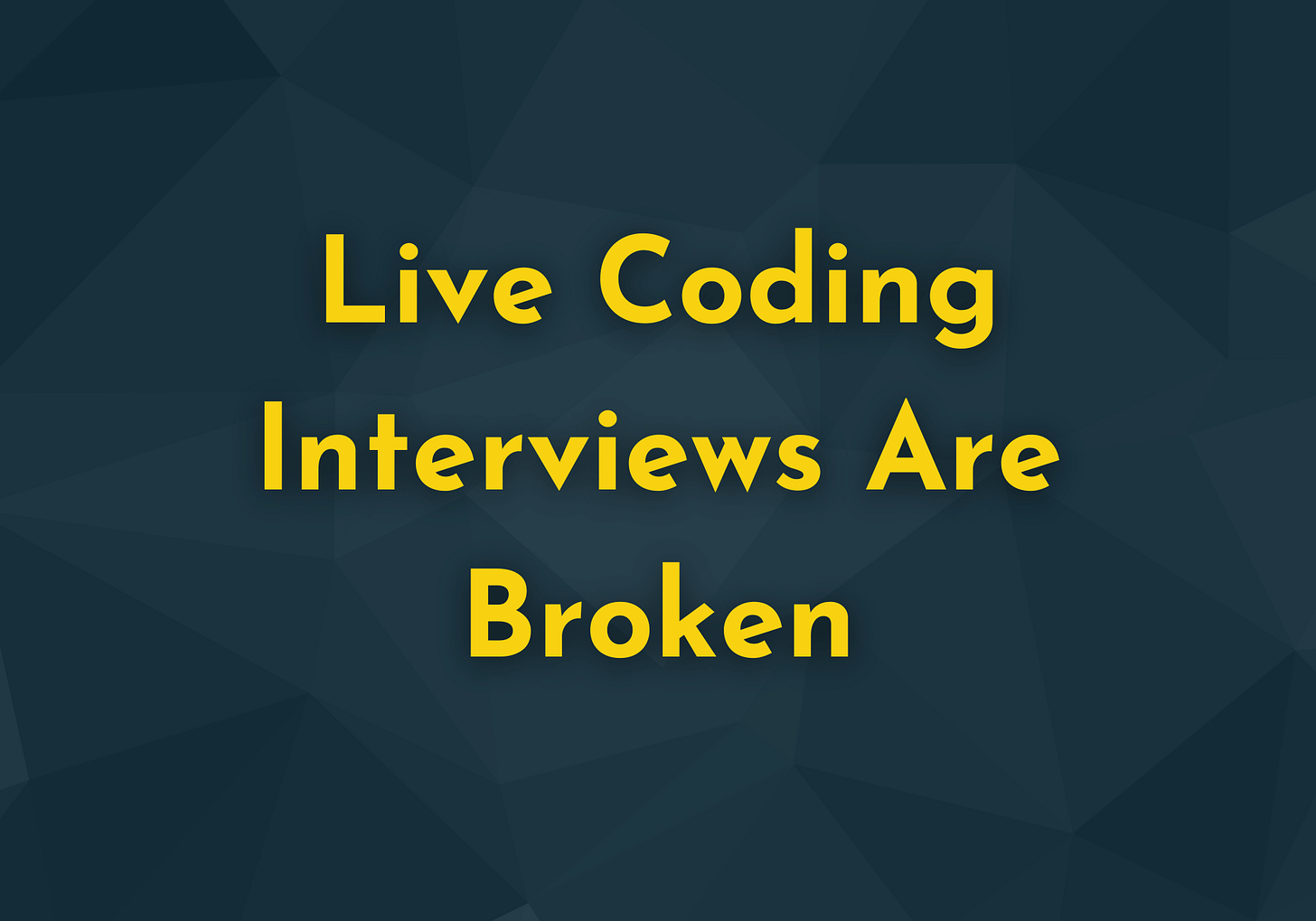Why live coding interviews fail to find great developers
Still doing live coding in interviews? Here’s why it’s failing you—and what should replace it.
A few weeks ago, I shared a post on LinkedIn about live coding interviews. It became one of my most successful posts so far.
You can read it here: https://www.linkedin.com/feed/update/urn:li:share:7304054419959042048
Many people agreed with the message. Because if you’ve ever done a live coding interview, you know how different it is from real software development.
Here’s why they don’t work—and what we can do instead.
Live coding feels like an exam. And that’s the problem.
Every time I’ve done a live coding interview, the setup was the same. Solve a problem under time pressure, with someone watching my every move. No internet. No real-world context. Just a whiteboard or shared screen, and the pressure to explain everything as I go.
But that’s not how we work in real life.
No one is watching me while I type. I can stop and think. I can search for something online or ask for help. I can try a few ideas before choosing the best one.
And most of the time, I’m not working alone. I’m part of a team. We solve problems together. It’s not about speed or showing off. It’s about finding good solutions that work in the long run.
So what do live coding interviews actually test?
Mostly, they test how well someone performs in a stressful situation.
They reward people who can stay calm under pressure, solve problems quickly, and remember things without help. But that’s not how real software development works.
In real projects, you have time to think. You can use tools, ask questions, and look things up. You can discuss options with others before making a decision.
Live coding interviews often ignore these things. They focus too much on speed and memory—and too little on real problem-solving.
How to do it better
If we want to hire engineers who work well in real teams, we should look at how they solve real problems.
Give them tasks that feel like the kind of work they’d do on the job. Talk through a system they’ve built or a project they’ve worked on. Ask why they made certain choices, and how they handled challenges.
Look at how they think, how they explain their ideas, and how they’ve worked with others.
This will tell you much more than watching them write code on the spot.
Coding speed and syntax recall aren’t the most important qualities.
You want team players who can build trust, take ownership, and help your team grow.
And your interviews should reflect that.





Thanks for this Gábor but posts like these without acknowledgement of the time commitment required by candidates and companies, and the repeatability and trainability of live coding interviews, feels like we're not advancing the conversation.
Likewise to all those posts out there about AI cheating---no solutions offered :)
I'm 100% aligned with your arguments Gábor.
Live coding does not make sense. We start from a premise: if you are applying for the role X, is because you are ready for it.
- If you are a junior software engineer 👉🏼 You know coding and are willing to face challenges
- if you are a software engineer 👉🏼 On top, you know best practices and understand and propose how to solve business problems
- If you are a senior software engineer / Tech Lead 👉🏼 On top, you ensure your team follows best practices, and lead the solutions in your team and nearby immediate organization
- If you are a staff software Engineer, 👉🏼 On top, you solve cross-functional problems in the engineering organization.
Let's set the expectations clearly during the interview, so the candidate understands if she/he is ready for it.
That said, during the interview, let's focus on how the candidate solves problems that will have to deal with on a daily basis.